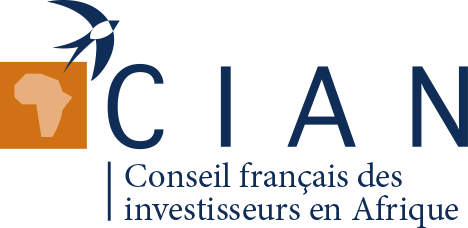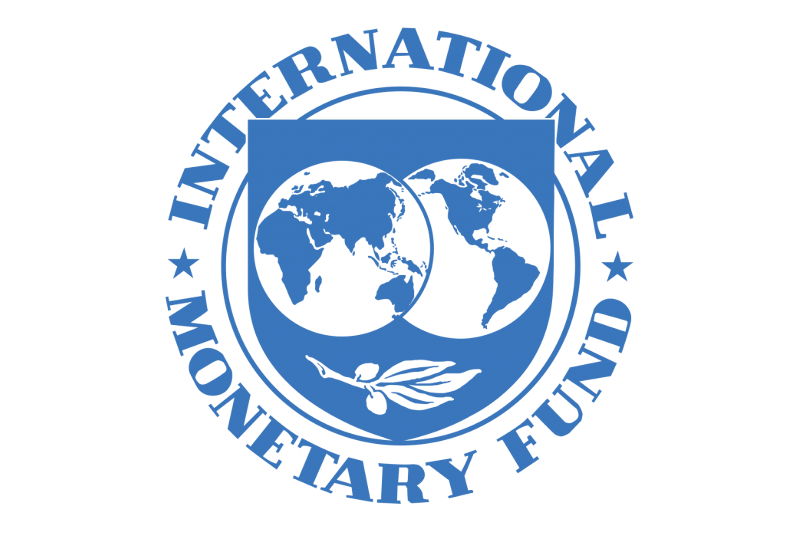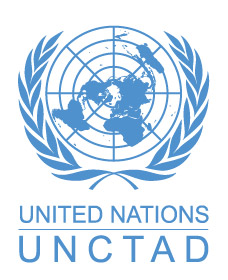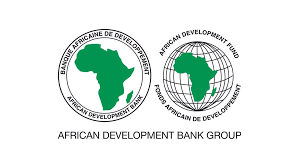ITC: Promoting SME Competitiveness in Togo

ITC has published its new paper entitled ''Promoting SME Competitiveness in Togo: A resilient foundation for transformative growth''
Enhancing the competitiveness of small and medium-sized enterprises in Togo can protect them from the effects of crises and unleash their potential to trigger economic transformation. Drawing on data from the SME Competitiveness Survey, this report shows that Togolese businesses that fared better during the COVID-19 crisis shared certain characteristics: better human resource matching and management, stronger connections to business support organizations and higher productivity. Yet access to skilled labour, electricity and other key competitiveness factors is unequal across regions, and also varies according to the age and gender of the business owner.
New Dynamics Shifting Patterns in Africa’s Infrastructure Funding

Moving On From a Year Like No Other 2020 was a year like no other. The impact of the pandemic has been acutely felt in infrastructure projects across Africa. Significant disruption to supply and restrictions on labor movement conspired to delay progress, and existing market volatility around commodity prices and government elections has been exacerbated by uncertainty. Previously reliable sources of project finance faltered and infrastructure investment in Africa fell sharply.
This period of turmoil notwithstanding, infrastructure remains key to unlocking the potential of Africa and market fundamentals show untapped opportunity and significant demand. The most recent numbers are not representative of ongoing investor interest in the region — there remains pivotal projects to be completed and value to be realized. 2020 represents a temporary global shock rather than a long-term localized trend.
Commission Santé - L'évolution de la pandémie du COVID-19 en Afrique : état des lieux, accès aux vaccins et responsabilités des entreprises

Animée par Erick Maville, président de la Commission Santé, cet évènement a été une l’opportunité de rendre compte de la situation en Afrique quant à la pandémie et la vaccination, et de cerner les différents enjeux que cela entraine pour les entreprises.
International Trade Center - She Trades AfCFTA: Products & Markets with Export Growth Potential in COMESA

In the context of the SheTrades in the African Continental Free Trade Area (AfCFTA) project, which supports women entrepreneurs and producers to benefit from trade opportunities under the agreement, this report presents the findings of a study, using ITC’s Export Potential Map methodology, that identifies products and markets with export growth potential in countries in the COMESA region.
How will African farmers adjust to changing patterns of precipitation?

In January 2020, the McKinsey Global Institute published Climate risk and response: Physical hazards and socioeconomic impacts. In that report, we measured the impact of climate change by the extent to which it could affect human beings, human-made physical assets, and the natural world. We explored risks today and over the next three decades and examined specific cases to understand the mechanisms through which climate change leads to increased socioeconomic risk. This is one of our case studies, focused on agriculture in Africa.
We investigated cases that cover a range of sectors and geographies and provide the basis of a “micro-to-macro” approach that is a characteristic of McKinsey Global Institute research. To inform our selection of cases, we considered over 30 potential combinations of climate hazards, sectors, and geographies based on a review of the literature and expert interviews on the potential direct impacts of physical climate hazards. We found these hazards affect five different key socioeconomic systems: livability and workability, food systems, physical assets, infrastructure services, and natural capital.
Private Finance for Development: Wishful Thinking or Thinking Out of the Box?

Does Africa need more private finance?
The COVID-19 pandemic has aggravated the tension between large development needs in infrastructure and scarce public resources. To alleviate this tension and promote a strong and job-rich recovery from the crisis, Africa needs to mobilize more financing from and to the private sector.
Why now?
It is a pivotal moment for Africa. In recent years, many African countries have relied on public investment-driven growth, which is reaching its limits given high debt levels and limited domestic revenue mobilization. Moreover, the pandemic has eroded the foundations on which progress was achieved in the past two decades (strong global growth, easy access to external financing, supportive commodity prices). In this new environment, development strategies need a rethink.
UNCTAD Global Trade Update May 2021

Amid economic disruptions from COVID-19, on the whole global trade held up relatively well in 2020. Much of the trade resilience was due to East Asian economies, whose early success in pandemic mitigation allowed them to rebound faster and to capitalize on booming global demand for COVID-19 related products. The positive trends from the last few months of 2020 grew stronger in early 2021. In Q1 2021, the value of global trade in goods and services grew by about 4 per cent quarter-over-quarter and by about 10 per cent year-over-year. Importantly, global trade in Q1 2021 was higher than pre-crisis levels, with an increase of about 3 per cent relative to Q1 2019. The trade rebound of Q1 2021 continues to be driven by the strong export performance of East Asian economies. In Q1 2021, the value of trade in goods was higher than pre-pandemic level, but trade in services remains substantially below averages. During Q1 2021, global trade of COVID-19 related products remained strong.
Africa Fertilizer Financing Mechanism (AFFM) - Annual Report 2020

This Annual Report for the year 2020 gives an overview of the third year of implementation of the Africa Fertilizer Financing Mechanism (AFFM) since it became operational, and the third year of implementation of its 2018-2020 strategy. During the year, activities focused on implementing projects approved in 2019 and processing approval of projects in the pipeline.
Read full report here.
source: African Development Bank Group
Economic Diversification in Africa: How and Why It Matters

For decades, economic diversification has been a policy priority for low- and middle-income economies. In the words of former managing director of the International Monetary Fund (IMF), Christine Lagarde, “We know that economic diversification is good for growth. Diversification is also tremendously important for resilience.” Unfortunately, this goal continues to elude many African countries. In fact, the continent is home to eight of the world’s fifteen least economically diversified countries. This reality weakens the foundation of their economic transfomation and slows their pace of progress. It also makes these countries particularly vulnerable to sudden external shocks, as the pandemic-induced disruption of tourism and oil-dependent economies has illustrated.
Given the importance of diversifying African economies, it is critical to recognize how various dimensions of diversification can have different implications for the menu of policy options. Closely associated with the process of structural transformation from lower to higher productivity sectors, economic diversification has three evident dimensions. The first relates to the expansion of economic sectors that contribute to employment and production or gross domestic product (GDP) diversification, and the second is associated with international trade or exports diversification. This paper, however, focuses on a third dimension that the economics literature pays scant attention to: fiscal diversification. This fiscal element involves expanding government revenue sources and public expenditure targets and can therefore play a central role in helping to catalyze broader economic transformation through the expansion of activity in specific industries and sectors.
Qualities of a leader 22 African countries 2019/2021

The proper role for unelected “traditional leaders” or “chiefs” in modern African societies has been debated for decades. Once written off as anachronistic, irrelevant, and anti- democratic, especially after the democratic openings that swept across the continent in the 1990s, chiefs have been resurgent in recent years, establishing themselves as an integral part of the fabric of local governance in many countries. The unelected chieftaincy has not just coexisted but thrived alongside the practice of democracy, elections, and multiparty competition. In many places chiefs work in tandem with local councillors to allocate land, resolve conflicts, and govern communities. Most recently, chiefs have been called on to reinforce national battles against the COVID-19 pandemic (Sanny & Asiamah, 2020).
New survey findings from Afrobarometer confirm that the position of traditional authorities is still strong, or even strengthening. Chiefs get consistently higher citizen ratings for trust and performance, and are seen as markedly less corrupt, when compared to elected leaders and government officials, and the gaps are widening. Chiefs find support not only among elderly rural men, but also among women, urban residents, youth, and the most educated.




